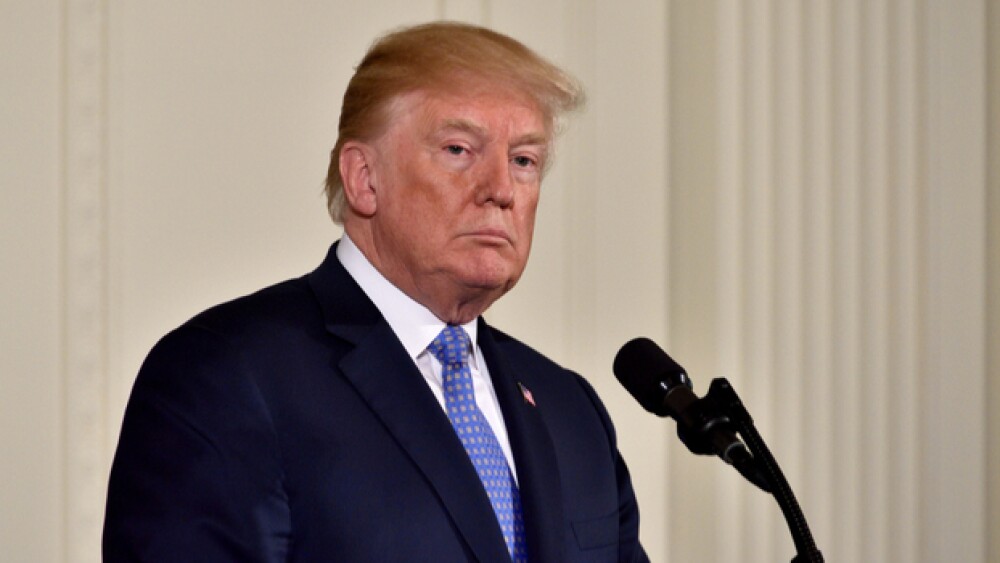The administration sees the push for transparency as a tool to help consumers control the costs of their health care.
Evan El-Amin / Shutterstock
Weeks after initiating a rule to force pharmaceutical companies to disclose list pricing of prescription drugs in television advertisements, the White House is looking to expand that to the health care industry at large.
President Donald Trump is expected to issue an executive order next week that will mandate price disclosure across the health care industry, the Wall Street Journal reported this morning. The move would be highly disruptive to the industry, which is not used to having a spotlight shined on its pricing policies, the Journal noted. Citing unnamed sources who are familiar with the matter, the Journal said the Trump administration will wield the power of the federal government to force the price disclosures as part of an effort to drive down health care costs. In particular, the Journal said that the order could be aimed at “regional monopolies of hospitals and health-insurance plans over concerns they are driving up the cost of care.”
The goal of the order is to arm patients with pricing data in order to provide them with greater control over their health care costs. The topic has become a key political issue ahead of the 2020 presidential election, in large part due to the increasing price of prescription drugs, such as insulin, which saw prices double between 2012 and 2016.
The pricing disclosure is something the health care industry, including insurance companies, has fought and will continue to fight. The Journal reported that the Trump administration has been planning to fight these measures through the issuance of a Department of Labor rule that would force insurers to publish the negotiated rates they pay for health care services. Additionally, the Department of Health and Human Services has been seeking public comment regarding the rights of patients to see discounted prices ahead of seeking care. Such a rule would force hospitals and other medical practices to publicly disclose the negotiated amounts they charge insurance companies.
Hospitals and other members of the health care community have argued that individuals are more concerned with their own out-of-pocket expenses, rather than the prices negotiated between insurance companies and medical providers. By mandating these disclosures, the critics of the plan say the sunshine on those negotiated prices could actually cause an increase in health care costs if caregivers discover that other providers pay a different negotiated rate, the Journal said.
The White House isn’t the only political entity pushing for greater pricing disclosure. Legislation has been introduced in both chambers of Congress calling for pricing disclosure. Most recently, a bipartisan bill was introduced in the U.S. Senate by Sens. Bill Cassidy, a Louisiana Republican., and Michael Bennet, a Democrat from Colorado that “would end contractual gag clauses between providers such as hospitals and insurers that can restrict the ability of patients to get cost information.”
Also this month, Sen. Ron Wyden, an Oregon Democrat, introduced a bill that would force insurers to tell patients what their out-of-pocket expenses would be for various medications or in-network medical procedures.
Last year the Trump White House released its blueprint for lowering healthcare costs, called American Patients First. The plan includes four primary strategies to bring down costs -- boosting competition, enhancing negotiation, creating incentives for lower list prices and bringing down out-of-pocket costs.





